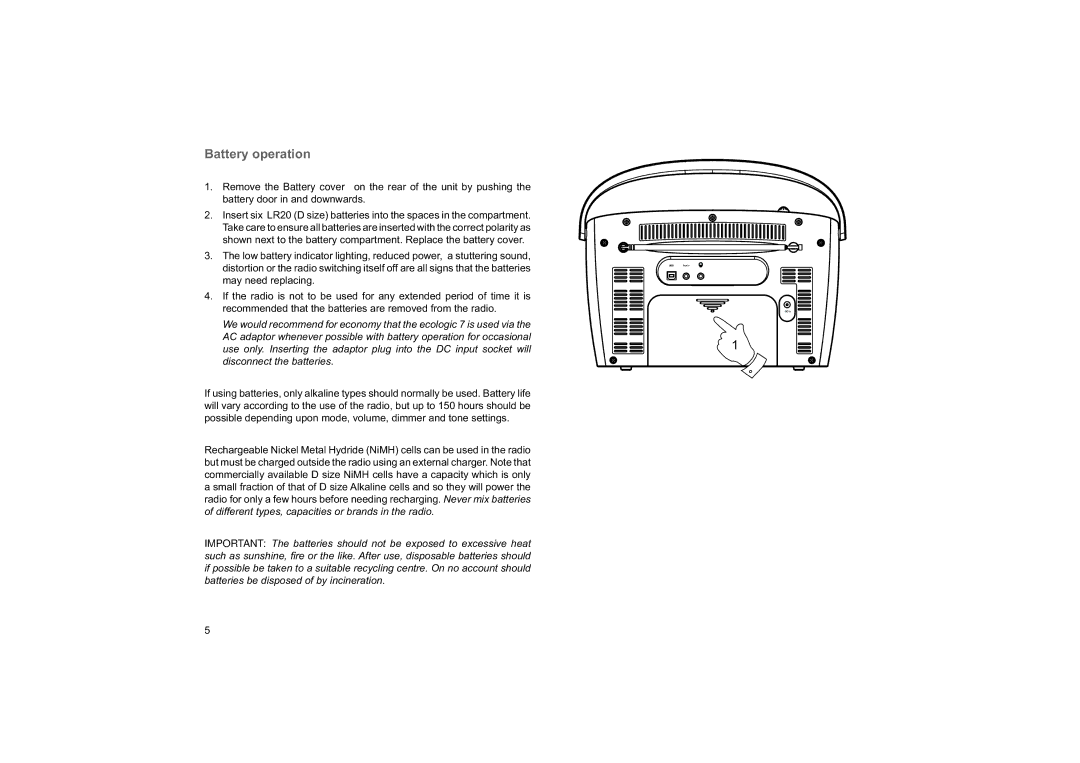
Battery operation
1.Remove the Battery cover on the rear of the unit by pushing the battery door in and downwards.
2. Insert six LR20 (D size) batteries into the spaces in the compartment. Take care to ensure all batteries are inserted with the correct polarity as shown next to the battery compartment. Replace the battery cover.
3. The low battery indicator lighting, reduced power, a stuttering sound, distortion or the radio switching itself off are all signs that the batteries may need replacing.
4.If the radio is not to be used for any extended period of time it is recommended that the batteries are removed from the radio.
We would recommend for economy that the ecologic 7 is used via the AC adaptor whenever possible with battery operation for occasional
use only. Inserting the adaptor plug into the DC input socket will1 disconnect the batteries.
If using batteries, only alkaline types should normally be used. Battery life will vary according to the use of the radio, but up to 150 hours should be possible depending upon mode, volume, dimmer and tone settings.
Rechargeable Nickel Metal Hydride (NiMH) cells can be used in the radio but must be charged outside the radio using an external charger. Note that commercially available D size NiMH cells have a capacity which is only a small fraction of that of D size Alkaline cells and so they will power the radio for only a few hours before needing recharging. Never mix batteries of different types, capacities or brands in the radio.
IMPORTANT: The batteries should not be exposed to excessive heat such as sunshine, fi re or the like. After use, disposable batteries should if possible be taken to a suitable recycling centre. On no account should batteries be disposed of by incineration.
5
